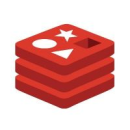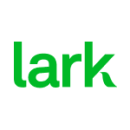Although Women’s Equality Day wasn’t officially recognized until 1973, its origins date back to 1848, when the world’s first women’s rights convention was held in Seneca Falls, New York. The convention sparked a massive civil rights movement and even led to the ratification of the 19th Amendment to the U.S. Constitution, granting women the right to vote in 1920.
In 1971, a representative in Congress championed a bill to commemorate August 26 as Women's Equality Day — officially marking the date as an annual day of recognition. Today, more than 30 years later, the day is supported and celebrated across the country: it continues to call attention to the women, and their allies, who fight for equality and inclusion.
Below, Built In San Francisco checked in with four local companies that not only support and celebrate Women’s Equality Day, but support and celebrate women all year long. Through hiring initiatives, promotions, learning and development opportunities and more, these tech companies are setting the standard.
“Tech companies are actually ideally positioned to lead in inclusiveness and equitable cultures,” Melissa Baird, COO and head of technology at hims & hers, said. “After all, it’s an entire industry built on innovation and newness of thought — two concepts that can only truly thrive with inclusivity and equity.”
To elevate women of all positions, Redis Labs, an open-source, in-memory database, lets its employees design their own development path. Vaughan said that the company offers a variety of options, from self-paced learning paths to on-the-job training or a coaching and mentorship mindset.
What are your overall career goals, and to what degree have you been able to fulfill them at Redis?
Let’s get real for a moment. To me, career goals are connected to our personal definition of success, something each of us must define for ourselves, which is tied to our passion and persistence. Over the years, how I think of career goals has changed — instead of a ladder, it’s a jungle gym of experiences and accomplishments that grows and changes with you.
Redis Labs is an amazing place to be right now, with the key ingredients to reach my current career goals. Sales and marketing have a great partnership. The conversations are real, authentic, and we enjoy an openness in tackling opportunities together. Redis Labs also embraces transparency and creates a seat at the table for everyone. This spans access to information, access to the C-suite and access to resources. This is such a gift and really sets our culture apart from other tech companies.
There’s reciprocal trust with my coworkers across functions. We share the load and know we can rely on each other. And the people here are second to none. As a leader, I care about building relationships and creating the conditions for colleagues to succeed and grow. Success is knowing that I help others on the team achieve their goals.
Representation is so important at all levels — from women who are just beginning their careers to women in leadership.”
What professional development resources does your employer make available?
It’s so important to invest in ourselves. In support of this, one of our team objectives is tied to personal development. This can take many paths. It can be improving knowledge of Redis Labs solutions, gaining a deeper skill set with a demand creation technique, networking with peers, strengthening presentation skills — the list is endless. Professional development is intimately connected with how we each define success and our career goals. I always like to ask my team what’s important to each person and tailor development recommendations to the individual.
Redis Labs believes in embracing continuous learning and offers a variety of options, from self-paced learning paths to on-the-job training or a coaching and mentorship mindset. These resources help to round out the individual plans. The fun really begins when we have the opportunity to take on a new project and put those new skills to work. As a late-stage startup, Redis Labs is at that perfect crossroads of stability and growth where you can launch new projects that really have an impact on the future of the company.
How can tech companies promote an inclusive and equitable culture for women?
It starts with representation. Representation is so important at all levels — from women who are just beginning their careers to women in leadership. It starts with simple steps, like ensuring women are part of the candidate pool for open roles, especially those roles that have historically been male-dominated. Or with listening to women’s unique perspectives on everything from work projects to remote work in a COVID-19 world — many women are juggling motherhood and the demands of their careers.
It’s ensuring vendors have diversity in their organization and asking secondary questions to create a true, deeper understanding and partnership. It's investing in women with skills development, coaching and teaching. It’s avoiding the “old-boy” network with access — and a seat at the table. Most importantly, I personally am very excited when I see men in leadership positions really listen to the women in the room. We are different, with unique perspectives and a different style. Embracing these differences is when the magic happens.
Women’s roles in the tech workplace have changed. Health tech and wellness company hims & hers is leaning into the new normal. In addition to hiring those with diverse skills, Baird said that the company is currently working on a strategic learning and development program to help create more opportunities for women leadership roles.
What are your overall career goals, and to what degree have you been able to fulfill them at hims & hers?
I have always loved tackling huge projects –– particularly ones that allow me to make a plan, figure out efficiencies and then look at what I accomplished over time. My most rewarding moments are when I look around at a team and see each person applying talents to jobs created by a company that didn’t exist before.
For someone like me, hims & hers is an absolute dream job. We went from not existing to becoming a public company in less than four years. We are doing something that has been long overdue, but never tackled — offering convenient access to personalized treatments and quality, affordable healthcare. This team has built so much in such a short period of time and there’s still so much in front of us. There is, and will continue to be, no shortage of moments to look back at all the accomplishments we’ve made and be proud while continuing to build.
What professional development resources does your employer make available?
Formal professional development resources are top of mind for us. We’re building out a strategic offering as we speak. Part of the cultural DNA of hims & hers has always been to make space for development. Within the first six months of joining hims & hers, I had to give a huge speech. It was nerve-racking because public speaking is not my favorite activity. I made our CEO aware and he booked me a couple of sessions with a coach and then cleared an entire day from his calendar so I could practice that speech with him over, and over and over. He could have taken an easier route and just given the speech himself. But now, he has a COO who is more confident in those situations and can scale better as a result. While it wasn’t the most fun thing to do, I’m incredibly grateful to him for encouraging me to do it — it’s helped me a lot professionally.
Professional development is a long-term investment, but one that we love making at this company. After all, more skills make more well-rounded employees that are more valuable and happier. In turn, this makes the company better because happy people with more skills are going to be more successful at helping you achieve the vision.
In tech, being equitable and inclusive is not something you stumble into accidentally.”
How can tech companies promote an inclusive and equitable culture for women?
Tech companies are actually ideally positioned to lead in inclusiveness and equitable cultures. After all, it’s an entire industry built on innovation and newness of thought — two concepts that can only truly thrive with inclusivity and equity. The challenge with this, though, has been that for years, technologists have disproportionately been men, which over time creates tech leaders who are mostly men. Only now, with today’s rapidly evolving gender dynamics and culture, are women really beginning to more frequently occupy tech leadership roles and making space for future female leaders.
If companies truly want to promote an inclusive and equitable culture for women, they have to pay attention and be deliberate in interviewing a diverse set of candidates for positions. In addition, they will need to make sure that whoever is hired in leadership positions values equity as well and has the tools needed to build a team that readily incorporates diverse viewpoints. In tech especially, being equitable and inclusive is not something you just stumble into accidentally — you have to be thoughtful and intentional to achieve an even (or more even) playing field.
At payments platform Afterpay, women are encouraged to participate in conferences, tech talks, online training and more. Additionally, the company provides access to online learning platforms, such as BAI, which Xu said helped her learn more about the fintech industry in general.
What are your overall career goals, and to what degree have you been able to fulfill them at Afterpay?
I want to build products that can positively impact users. I like to provide technical solutions to enhance user experience. We noticed that the current refund system underwent a lot of corner cases, which increases the workload for customer service teams since they need to manually issue refunds. Some merchants may accidentally issue duplicated refunds to our consumers, and some merchants may refund an incorrect amount. My teammates and I developed a smart algorithm to handle such issues and save the team time during the holiday season. Helping customers address problems always motivates me and give me a sense of accomplishment.
I’m also always looking to enhance my software engineering skills and architect software solutions. I find it interesting to learn new technologies and utilize them in my projects. Those two goals complement each other because I can always gain more skills and knowledge while building.
It is important to get women into leadership positions, which can lead to more female-friendly environments.”
What professional development resources does your employer make available?
My employer provides conferences, tech talks, online training and many other activities as professional development resources. For example, our company has an online learning platform called GO1 Learning where we can learn new technical skills, written skills, management skills and other interesting topics. It also has many courses related to mental health and wellbeing.
We have another online learning platform called BAI, where we can learn some financial laws like The Gramm-Leach-Bliley Act (GLBA). I don’t have much finance background, but these courses increased my knowledge in the field and helped me understand more about risk assessment and fair lending compliance.
How can tech companies promote an inclusive and equitable culture for women?
I have seen many women in tech companies with excellent working ability — including but not limited to strong software engineering skills, good communication skills, leadership and so on. They are bright, innovative and diligent. However, most of them need to make a choice between having children and staying in their careers. I hope tech companies can implement more policies that create cultures that are open to moms and support their career advancement. For example, companies can provide more flexible maternity leave policies so that women can mitigate burnout after returning to work. Also, I think it is important to get women into leadership positions, which can lead to more female-friendly environments.
Lark Health, a chronic disease and prevention management platform, supports the professional development of its employees in a number of ways. According to Rapoport, the company offers access to a talent development platform that provides skills and leadership development as well as opportunities for mentorship and to attend conferences.
What are your overall career goals, and to what degree have you been able to fulfill them at Lark Health?
I don’t have one specific career goal. I have many. I have to learn all the time: it can be a new modeling technique or software, but it can also be how to manage people, how to get the best out of everyone on my team, and how to contribute the most to the growth of the company. I see it as a multivariable maximization problem. It is my role to create an environment to leverage this group of brilliant and unique team members to impact the company and lives we serve. It is extremely important to me that every single person on my team feels the same way: that they are learning and moving forward all the time.
I definitely fulfill this at Lark. I’ve grown my team from one to 15. I am responsible for clinical research, business insights and data science, which means I have a variety of skill sets, interests and backgrounds on my team. We managed to leverage that and make it our strength. A lot of the work we do at Lark is cross-functional, and we always have a member from the team in any discussion. Lark is an extremely collaborative company, open to all ideas and suggestions from anyone, which is exactly the culture I need to build the team we want to have.
What professional development resources does your employer make available?
Even though we are a small organization, we strongly promote development through a number of channels. Firstly, we leverage a talent management platform that provides skill and leadership development. Each employee has an annual personal development budget they can use. We provide mentoring (formal and informal) for employees. Lastly, each employee has the opportunity to attend conferences that align with their career trajectory.
Lark is an extremely collaborative company, open to all ideas and suggestions from anyone.”
How can tech companies promote an inclusive and equitable culture for women?
I have a team that is 80 percent women. I think that when a woman hops on her first call with a team member and sees a woman on that screen, it immediately makes her feel that this company is open and diverse. I have to admit I don’t try to hire women, it just happens. You simply need to start with one, and make sure she’s involved in the hiring process early on. Having women in leadership roles is, of course, helpful when possible. If you can get a female CEO like we have, that’s definitely a bonus.












